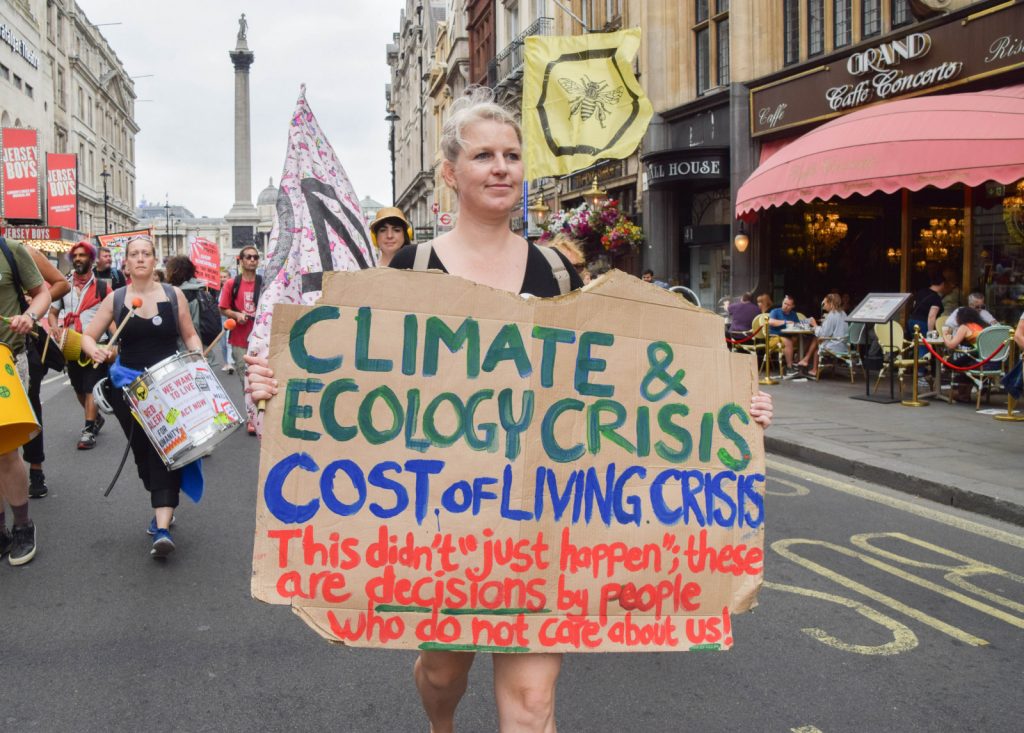
(Photograph by Vuk Valcic/SOPA Pictures/LightRocket by way of Getty Pictures)
International political tendencies reveal mounting stress for systemic financial reform, significantly in capital distribution.
Whereas capitalism persists due to globalisation’s unifying results, the disorganised opposition of socialist actions and briefly sustainable labour copy, its long-term stability in its present type hinges on whether or not it could possibly adapt to rising calls for for structural fairness — or danger upheaval.
Mounting discontent among the many working poor, rural populations and disillusioned youths indicators deepening systemic pressure.
Regardless of weathering repeated shocks, international development stays sluggish at underneath 3.2%, properly under pre-pandemic ranges, whereas inequality intensifies — 71% of humanity now lives in nations the place disparities are widening. Though the Organisation for Financial Co-operation and Growth pegs unemployment at 4.9%, youth joblessness persists at an alarming charge — 12.4% — exacerbating a palpable erosion of residing requirements.
This each day actuality of squeezed wages, fractured alternatives and generational alienation is fuelling a risky disconnect between financial constructions and people they fail to serve.
All over the world, discontent is manifesting in calls for for radical political-economic overhaul — usually focusing on liberal democratic establishments as failing guardians of prosperity.
This wave has fuelled a nationalist resurgence, with states just like the US, Austria, Germany, Argentina and India pivoting towards extra centralised, sovereignty-driven financial fashions. The message is obvious — belief in incremental reform is eroding and the urge for food for state-centric options is rising.
But these reformist waves carry a harmful undercurrent — the rise of far-right actions cloaked in nationalist financial rhetoric. The US underneath President Donald Trump exemplifies this danger.
His protectionist agenda threatens to erode greenback hegemony, disrupt international commerce and set off home unemployment and inflation. Such insurance policies danger exacerbating capital accumulation and distribution, in the end worsening the very inequalities fuelling at the moment’s discontent.
South Africa’s political economic system has, for now, averted the unconventional reform shocks seen globally, as a substitute navigating a extra standard — if risky — political realignment.
The ANC’s decline, pushed by inner fractures and poor efficiency in authorities, enabled the emergence of an ANC-Democratic Alliance (DA) coalition of modernists, however its faltering momentum of late suggests deeper upheaval would possibly loom.
The uMkhonto weSizwe issue, alongside fading hopes for nationwide unity, dangers igniting a much more destabilising demand for systemic change — one that might erupt into unrest within the nation’s most politicised areas — Gauteng and KwaZulu-Natal.
A couple of stats underpin this understanding. Weak development forecasts over the following three years (1.8%), deindustrialisation and eroding state capability converge with skyrocketing youth unemployment, rural marginalisation, and inflationary pressures.
Political hotspots like Gauteng and KwaZulu-Natal simmer, with dwindling social cohesion, whereas city apathy and electoral disengagement sign deepening disillusionment.
This flamable mixture of financial stagnation and social fragmentation suggests the nation may very well be nearing breaking level, the place the calls for of the disenfranchised youth, working poor and rural populations may ignite the reform shock South Africa has up to now averted
The ANC-DA political paralysis exposes a deadly miscalculation by moderates — their cautious bargaining ignores the explosive undercurrents for systemic change. Every delay in cooperation fuels additional public disillusionment, radicalising the rising ranks of the disenchanted. The selection is stark — pressing, transformative collaboration and significant reform or collective irrelevance as extra hostile forces fill the vacuum.
Siseko Maposa is the director of Surgetower Associates Administration Consultancy. He’s an everyday author on political economic system, each in South Africa and internationally.